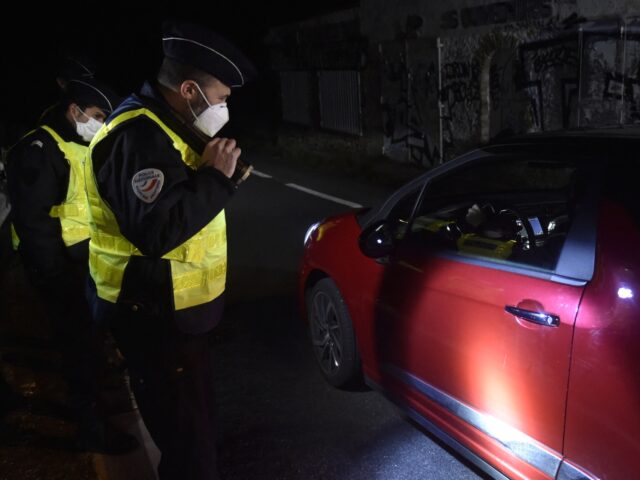France has extended border controls that have been in place since 2015 in defiance of the European Union’s open borders Schengen Agreement and a European Court decision that hinted the French policy was unlawful.
The French Council of State gave the go-ahead to renew the border controls — which have been renewed every six months since 2015 — on Wednesday, allowing France to continue to patrol its borders with other European Union (EU) member-states despite France being a party to the controversial open borders Schengen Agreement.
“Good news! The Council of State validates the maintenance by France of controls at the internal borders of the European Union. These controls are necessary to prevent the risk of terrorism as much as possible and to control migratory flows,” French Interior Minister Gerald Darmanin confirmed this week.
An Egyptian illegal migrant was killed this week by police in southern France after officers opened fire on a people smuggler’s vehicle that rammed a checkpoint near the Italian border.https://t.co/Frg97fAa7E
— Breitbart London (@BreitbartLondon) June 19, 2022
Earlier this year in April, the Court of Justice of the European Union stated that countries subject to the Schengen Agreement were allowed to suspend the treaty and restore border control for a period of up to six months.
However, the court went on to add that members could only extend the measure if a new threat, distinct from the original threat used to suspend the agreement, was present.
“[In 2015], the re-establishment of border controls was justified under the Schengen Border Code with an imminent terrorist threat and the organisation of COP 21. But at some point, this situation is no longer exceptional and the solution is cooperation between the Member States. That is what the text of the code provides. This should have led France to suspend controls,” law professor Serge Slama told the European Union-funded website InfoMigrants.
The French border controls have led to some controversies with the country’s neighbours in recent years, including Italy, which claimed in 2018 that French police had picked up migrants near the French border and dropped them back off in Italy.
The Schengen Agreement has faced more general difficulties in recent years, however, particularly over the course of the Chinese coronavirus pandemic, when many countries shut down their borders and shut down travel in an effort to stop the spread of the virus.
In 2020, at the start of the pandemic, the Schengen Agreement celebrated its 25th anniversary — despite the fact that nearly all contracting EU member-states had closed their borders and suspended the agreement.
SHOCK VIDEO: Over 100 Migrants Bust Border Barriers from Italy Into France https://t.co/xuizxdG5cl pic.twitter.com/smH0hax0FC
— Breitbart London (@BreitbartLondon) August 6, 2016

COMMENTS
Please let us know if you're having issues with commenting.